#disability resource
Explore tagged Tumblr posts
Text
Something that I would seriously urge people to do is make their own list of resources in their local/national area- for all kinds of problems. Have a big list of resources that includes things for resources for housing help, resources for low income struggles, resources for mental health, for sexual assault, for disability, etc.
When you or someone you love are in crisis, it can be incredibly difficult to do the work of searching out resources. It is time consuming, and can be very emotionally draining - which is tough to do when you are in a very vulnerable position. If you have all of the important phone lines, emails, and drop in centres in one easy place then you are cutting down so much work. You can do this really easily by just copying links and phone numbers into a Word document or into Google docs. Or even write it out into a notebook. Put things under a basic heading of 'mental health' or 'housing/homelessness'. It doesn't matter the way you organise it, what's important is that you know how to navigate it. You can also use this resource to list resource lists that other people have made, so you can easily find things again.
Please do this even for issues that you think you might never be in a position to struggle with. You never know what tomorrow might bring. All it takes is for one awful event to happen for you to end up homeless, or to end up in a financial crisis, or to end up disabled. Please never think that these things can't happen to you - and that's not to doomer post. But it's important to keep in mind when building a list of resources. Do it for everything you can think of. Even if you never use it for yourself, someone might reach out to you wanting help with something. And being able to easily send them over resources will be of great help to the both of you.
If that's really out of the question, have a look and see if a charity or something similar has a list of resources for your local area - sometimes they might have some lists of different similar resources you can access. Make use of these resources, they're there to help you!
28 notes
·
View notes
Text
Disability Aid Databases
Hey!
So. Originally this was going to just be a quick little post where I shared four databases I've found that really help me when it comes to updating my resource. However! In doing that, I discovered more??
These are essentially sites that collect a big list of different disability aid suppliers, specialists and support services across different countries and continents and then list them all for easy access.
And now I'm listing them here so you can access them! 😁[grinning face emoji]
-
Assistive Technology Australia: Australian Database Personally, I quite like the little pictures they use for their categories. I think it's quite well organised, although it took a little while to get used to. This site is in English.
Canadian Disability Resource Society: Canadian Database I found this site just a little harder to use than some of the others, but after playing around a bit I got the hang of it. I like that you can search by specific keywords and postcodes. I think the contact details are also very clear, and there is an online chat function if you run into any issues. There are extensive language choices for this site.
Disability Info South Africa: South African Database Just going to put a quick warning for potential eye strain and/or flashing lights here as there's a moving graphic on the home page. However, I really like the fact you can change the font size and contrast of the page. I do think the site is a bit wordy but it's so good; there's a lot of information and advice on here once you know where to look. This site is in English.
EASTIN: European Database This might be a bit difficult to use at first, but the search function on this site is so specific it's honestly incredible. It acts as a big data hub for disability aid databases across Europe. Also, there are extensive language options for this site, including mostly European languages, Arabic, Hebrew, Chinese and Thai!
Handicat: French Database Again, I like the little pictures for the categories. It gives a good visual representation of each area before you've even read the category title. There's also a little tool that lets you search by trade name, the type of product and the manufacturer. This page is in French.
Hjælpemiddelbasen: Danish Database Or, AssistData. This site lets you search for disability aids by purpose/classification and target group (i.e. disability). It also offers guides on choosing and maintaining different items. I like that the search function also has the option to include discontinued items. You can change the language of this site to either English or Dansk.
Living Made Easy: UK Database Or, the Disability Living Foundation. This was actually the first one I found. The organisation system isn't as specific as some of the others but I quite like that everything is still separated by category, and it's not too overwhelming. This site is in English.
REHADAT: German Database I really like the organisation of this site, but I'm going to put a warning for potential eye strain here as some of the blue graphics are a bit faded and hard to see despite the dark background. As well as assistive technology, this site also offers information on things like disability law, education, employment and financial advice, and addresses and contacts for additional support services. You can change the language of this site to either English or Deutsch.
SIVA: Italian Database I think this site is a little confusing, but I like the guided search and advanced search functions. You can really get down into the specifics of what you're looking for. You can change the language of this site to either English or Italian.
-
Unfortunately, there were a couple of extra databases that I couldn't access, but if I find any others then I will update this post.
Let me know if there's anything you want me to add/change!
#resources#disability resources#disability resource#disability aids#disability aid resources#assistive technology#databases#database#disability databases#informative#psa#links#long post#please add to this
81 notes
·
View notes
Text
UPDATE: NEW LINK! Yahya and his family were displaced by the IOF, and are currently residing in Deir al-Balah, south-central Gaza.
Life as displaced Gazans was already extremely difficult for them. Food is very scarce, and their living conditions leave them exposed to the elements. Here is the frequent condition of their tent now that the winter rains have come:

Then, Yahya’s father was injured. Some cartilage was damaged in his neck, and doctors say he requires IMMEDIATE surgery to avoid permanent paralysis.
Yahya and his family previously had another campaign, but it was suddenly shut down by GFM with no explanation. They have created a new one, but it has EXTREMELY LOW FUNDS.
The surgery is a stifling €15,000 euros (about $15,729 USD). Yahya and his family have no hope of paying for it without your help.
I am currently watching an elderly loved one lose their mobility, and it is an extremely heartbreaking and isolating situation. I cannot imagine what Yahya and his family are going through, having no social or financial support and only minimal medical care.
Please give what you can to this family. You are their only hope to save their beloved father’s mobility!
#yahya al habil#gaza#gaza genocide#gaza strip#gaza under attack#free gaza#from the river to the sea palestine will be free#palestinian genocide#stop genocide#stop the genocide#stop gazan genocide#stop gaza genocide#end israel's genocide#gaza aid#gaza action#gaza resources#gaza relief#gaza refugees#disability rights#disability#eldercare#gazan families#gazan genocide#gaza gfm#gaza gofundme#ngu*#aid for gaza#palestine aid#mutual aid#people helping people
24K notes
·
View notes
Text
I found an extremely dope disability survival guide for those who are homebound, bedbound, in need of disability accommodations, or would otherwise like resources for how to manage your life as a disabled person. (Link is safe)
It has some great articles and resources and while written by people with ME/CFS, it keeps all disabilities in mind. A lot of it is specific to the USA but even if you're from somewhere else, there are many guides that can still help you. Some really good ones are:
How to live a great disabled life- A guide full of resources to make your life easier and probably the best place to start (including links to some of the below resources). Everything from applying for good quality affordable housing to getting free transportation, affordable medication, how to get enough food stamps, how to get a free phone that doesn't suck, how to find housemates and caregivers, how to be homebound, support groups and Facebook pages (including for specific illnesses), how to help with social change from home, and so many more.
Turning a "no" into a "yes"- A guide on what to say when denied for disability aid/accommodations of many types, particularly over the phone. "Never take no for an answer over the phone. If you have not been turned down in writing, you have not been turned down. Period."
How to be poor in America- A very expansive and helpful guide including things from a directory to find your nearest food bank to resources for getting free home modifications, how to get cheap or free eye and dental care, extremely cheap internet, and financial assistance with vet bills
How to be homebound- This is pretty helpful even if you're not homebound. It includes guides on how to save spoons, getting free and low cost transportation, disability resources in your area, home meals, how to have fun/keep busy while in bed, and a severe bedbound activity master list which includes a link to an audio version of the list on Soundcloud
Master List of Disability Accommodation Letters For Housing- Guides on how to request accommodations and housing as well as your rights, laws, and prewritten sample letters to help you get whatever you need. Includes information on how to request additional bedrooms, stop evictions, request meetings via phone, mail, and email if you can't in person, what you can do if a request is denied, and many other helpful guides
Special Laws to Help Domestic Violence Survivors (Vouchers & Low Income Housing)- Protections, laws, and housing rights for survivors of DV (any gender), and how to get support and protection under the VAWA laws to help you and/or loved ones receive housing and assistance
Dealing With Debt & Disability- Information to assist with debt including student loans, medical debt, how to deal with debt collectors as well as an article with a step by step guide that helped the author cut her overwhelming medical bills by 80%!
There are so many more articles, guides, and tools here that have helped a lot of people. And there are a lot of rights, resources, and protections that people don't know they have and guides that can help you manage your life as a disabled person regardless of income, energy levels, and other factors.
Please boost!
#signal boost#please reblog#I'm so so glad this has gotten the traction that it has!#chronic pain#chronic illness#disability#fibromyalgia#cfs#chronic fаtiguе ѕуndrоmе#actually disabled#spoonie#me/cfs#cfs/me#long covid#important#invisible disability#ehlers danlos syndrome#lyme disease#chronically ill#cpunk#cripplepunk#it's a bummer that it's so US centric but if you're outside of the US you can look into similar programs#I hope that other countries have options like these#the US seems so behind when it comes to medical care and disability resources. and i mean it is#but it's good to know all of your rights as a disabled person or if you ever become disabled
24K notes
·
View notes
Text
Free Manual Wheelchair Reference Models

ID: A banner with grey 3D models of 5 kinds of manual wheelchairs in a line in front of the disability pride flag and text that reads "Manual Wheelchair References" /End ID
For disability pride month, I decided to release a pack of 3D manual wheelchair models.
The pack includes 5 wheelchairs:
2 Active urban-style chairs (one of which includes a smart drive)
1 off-road active chair
1 children's wheelchair
and 1 standard "hospital" wheelchair).
All the wheelchairs are based off either wheelchairs I or friends of mine have used
Downloadable here!
or on the Clip Studio Paint Asset Store (ID 2097442) (there's been an issue with the CSP version, but the models in the download folder can be imported into clip studio paint until I can fix it)
More info about the download contents below:
The first download link includes the original .Blend file with all 5 chairs, as well as individual .obj or .fbx files the chairs (All but 1 have an .obj file, as they're only meshes. The chair with the smart drive is rigged, which is why it has an .Fbx file instead so it will retain that information) as well as a "read me" file that explains in more depth what kind of disability/character/lifestyle each chair is made for (These are just what I had in mind when I designed them, they are usable by other characters who don't fit the suggestions for the most part!) I wanted to include the Read Me contents in the CSP Asset Store listing, but CS said it was too long lol.
Also, as the title says, these files are free to use! While it's not mandatory, I would appreciate credit if you use them (or even just a tag so I can see the cool art you make with them!!)
I actually made these ages ago, the original plan was to use them in a series of posts then release the pack, but I never got around to making the series and so they've just been sitting here. I took a day off from art fight attacks to clean them all up and get them ready to post. If you experience any issues, let me know and I'll try to fix it up.
I had a couple more that were supposed to be in the pack including a sports (basketball/Tennis) wheelchair and some different styles of wheelchair, but I think the files corrupted so once I fix (or remake) them, I'll probably make a second pack.
If you have any issues, please let me know!
#Writing Disability With Cy Cyborg#Disability in art#wheelchair#wheelchair user#disability#disabled#disability representation#mobility aids#drawing disability#drawing wheelchairs#art reference#art resources#Resources#manual wheelchair#art stuff#disabled artist#3d#3d model#blender#disability awareness#disabilities#disability in media
11K notes
·
View notes
Text
just a friendly reminder that, just because slavery was formally "abolished" in the so-called united states* in 1865, enslavement itself is still ongoing in the form of incarceration, which disproportionately affects Black and Indigenous people

(*i say "so-called" because the US is a settler-colonial construction founded on greed, extraction, and white supremacy) recommended readings/resources:
The New Jim Crow: Mass Incarceration in the Age of Colorblindness by Michelle Alexander
"How the 13th Amendment Kept Slavery Alive: Perspectives From the Prison Where Slavery Never Ended" by Daniele Selby
"So You're Thinking About Becoming an Abolitionist" by Mariame Kaba
"The Case for Prison Abolition: Ruth Wilson Gilmore on COVID-19, Racial Capitalism & Decarceration" from Democracy Now! [VIDEO]
#i know most of u probably followed me for fandom stuff but abolition and decolonization and sex workers' rights are so close to my heart#normally i'd post this on my academia blog but i have more followers here so. here ya go#enslavement is still ongoing in SO many other ways and it disproportionately targets BIPOC and disabled and impoverished people#might make another post about that#prison abolition#abolition#racial justice#juneteenth#social justice#human rights#resources#police abolition#decolonization#michelle alexander#mariame kaba#ruth wilson gilmore#13th amendment#antiracism
9K notes
·
View notes
Text
the US Department of Transportation is now accepting comments on new rules for US airlines regarding disabled passengers!
"The proposed rule would require that airlines meet rigorous standards for accommodating passengers with disabilities safely and with dignity. The proposal will set new standards for prompt, safe, and dignified assistance, mandate enhanced training for airline employees and contractors who physically assist passengers with disabilities and handle passengers’ wheelchairs and specify actions that airlines must take to protect passengers when a wheelchair is damaged during transport. Notably, the proposed rule also would make it easier for DOT to hold airlines accountable when they damage or delay the return of a wheelchair by making it an automatic violation of the Air Carrier Access Act (ACAA) to mishandle wheelchairs."
you can read the complete proposal here, and leave a comment here! the comments will be open for 25 days as of today, May 18th. if you're American, even if you aren't disabled, please leave a comment, and if not please share this around!
8K notes
·
View notes
Text

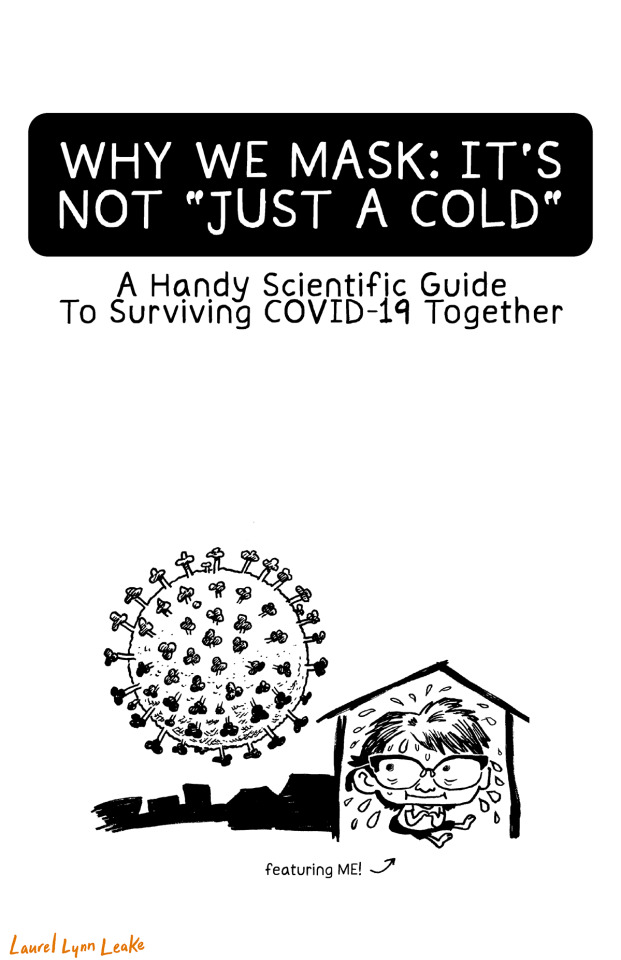





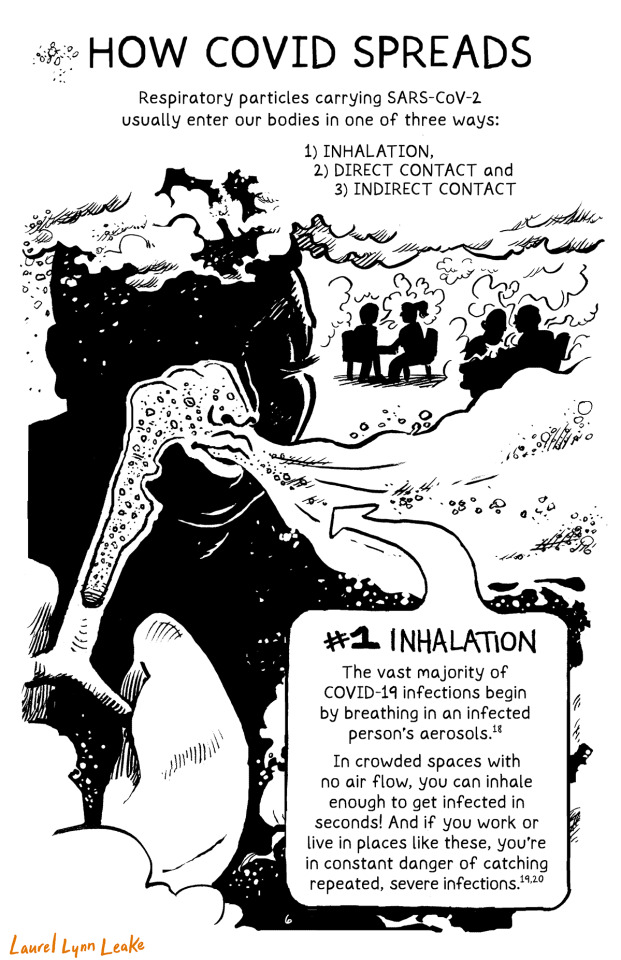

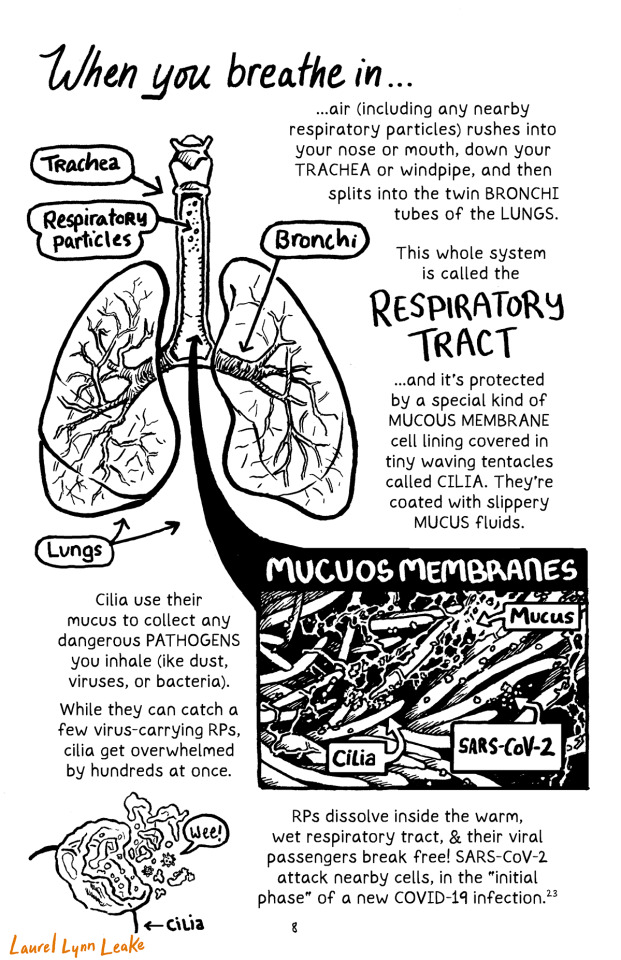


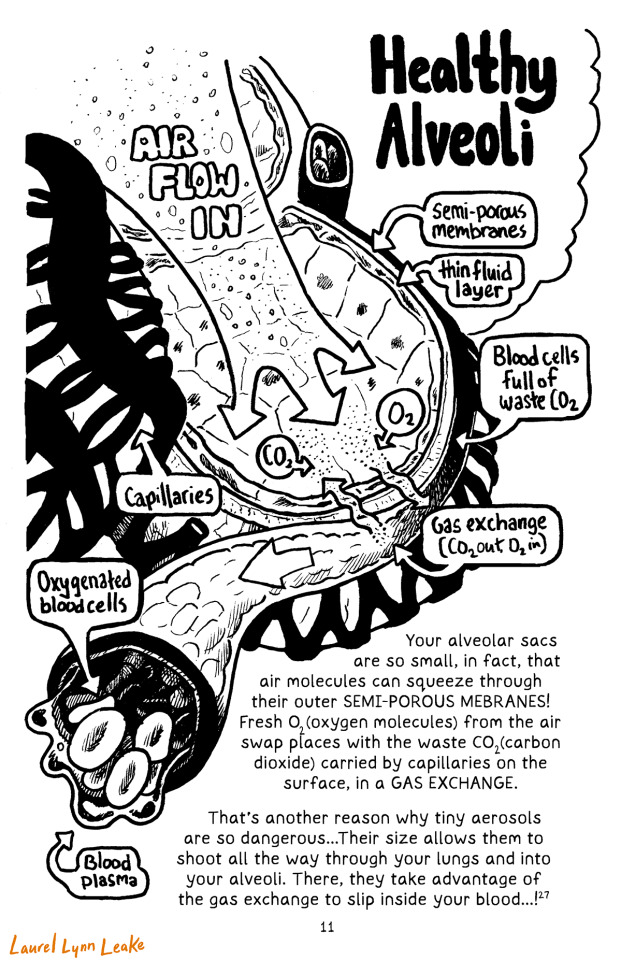



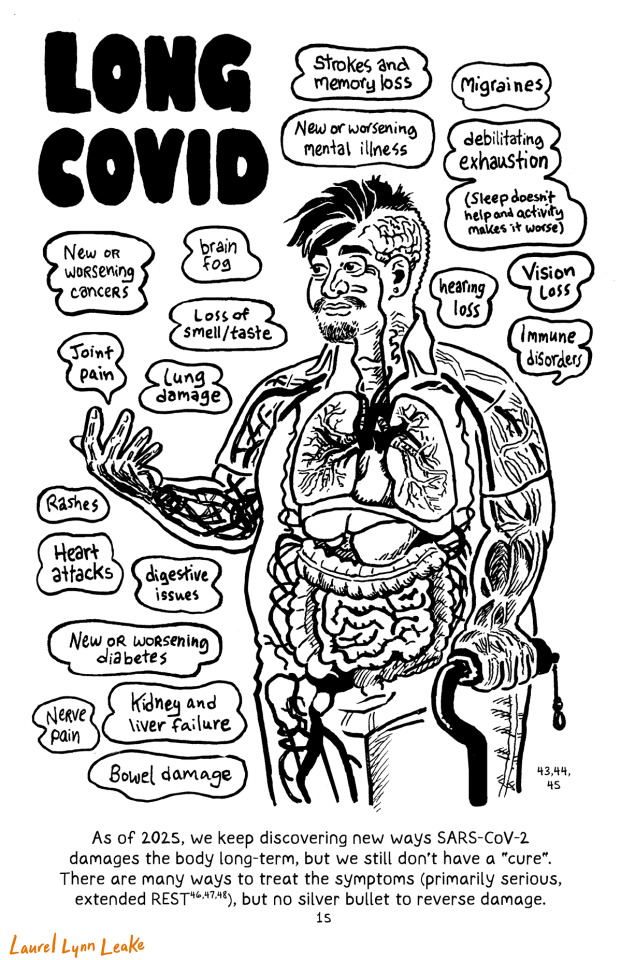



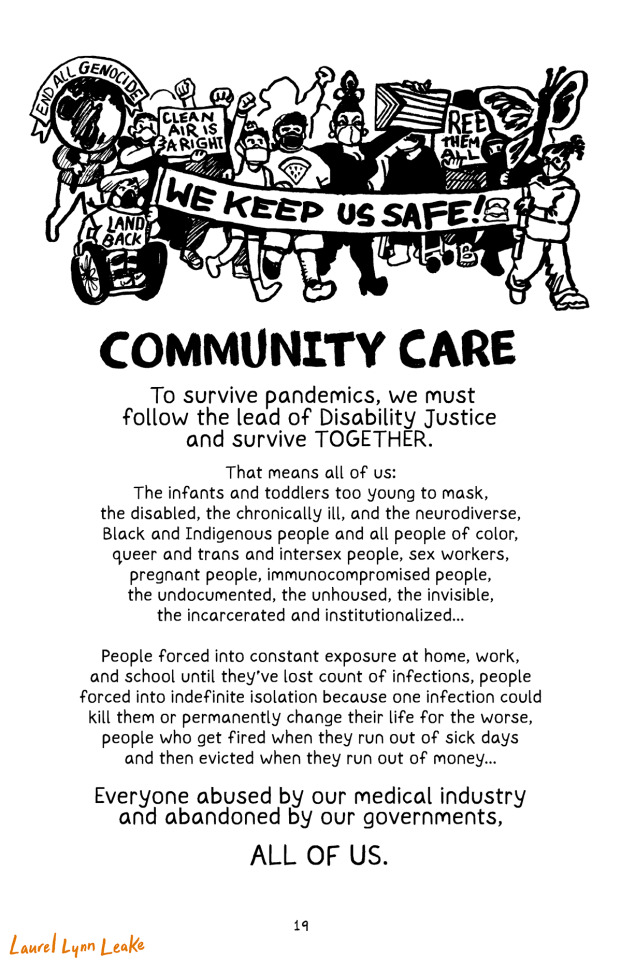



WHY WE MASK: IT'S NOT 'JUST A COLD' 2025 ED
My COVID-19 comic is BACK, babeee, because all these respiratory viruses sure didn't go anywhere! I took all your generous feedback from WHY WE MASK 2024 to make the free printable zine the best version of itself. Mainly, I edited all the dang text to be as simple and clear as possible! Which is harder than it sounds, but worth it to reach more readers. Also I did a million tiny visual fixes that no one will notice but me :P
Thank you to everyone who's read and shared the zine, and THANK YOU THANK YOU THANK YOU to everyone masking out there! It's never too late to start taking care of each other.
website version - featuring: clickable endnotes! working URLs!
free downloadable version - print & distribute your own copies! (donations to our print fund welcome but not required)
our patreon - help me & my partner @earnestattempts keep making comics like this one!
send us questions, comments, etc at [email protected] (we love seeing pics of the zine out in the wild)!
Extra pages under the cut, including sources for all the endnotes



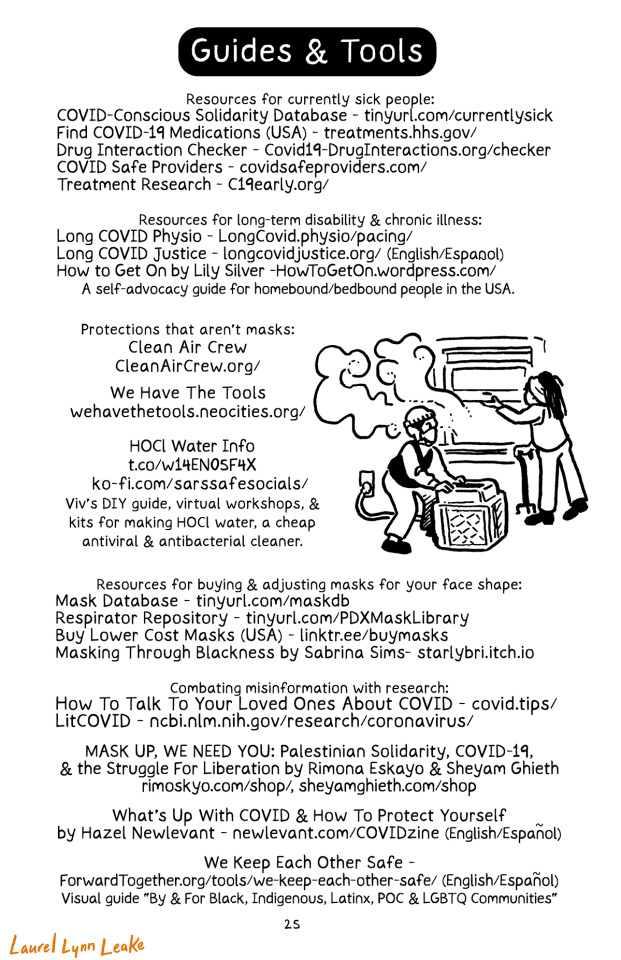
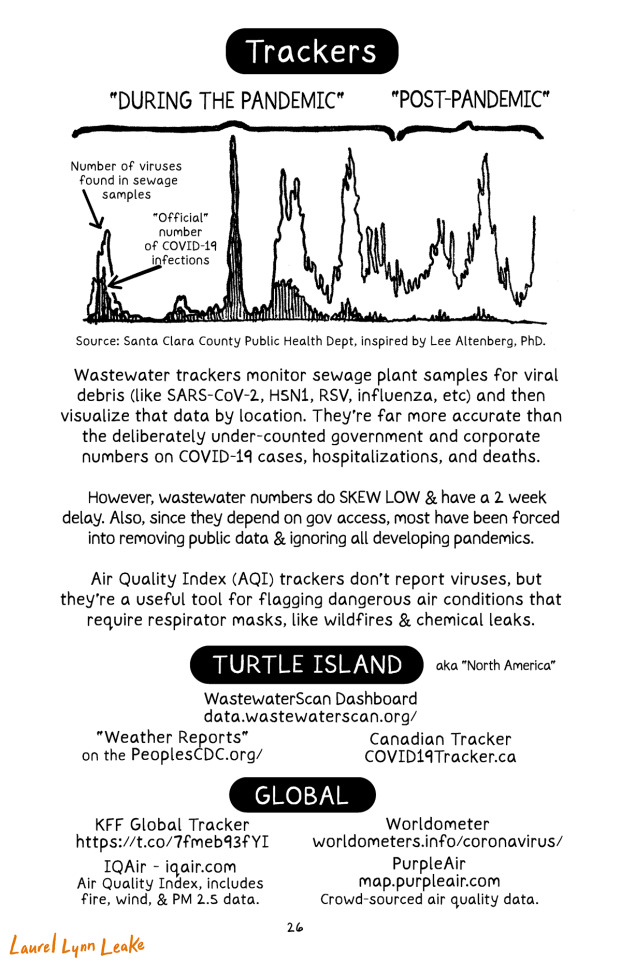

#covid 19#still coviding#long covid#pandemic#public health#free comics#free zine#lgbtq comics#lgbt comic#queer comics#disabled artist#covid conscious#corona virus#sars cov 2#why we mask#zine#covid resources
1K notes
·
View notes
Text

i saw this helpful print out at my local library earlier, i thought this could be of help to someone. even if you personally don't inject, this advice could save a life. I'm here for all addicts and users, we care about you and love you. everyone deserves to be informed about their health regardless of what substances they use
#punk#queer punks#trans punks#harm reduction#health#our pics#resources#needles tw#injection mention#disability#addiction
5K notes
·
View notes
Text
percy doing better than annabeth in college is one my favorite developments in the rrverse. if we reflect on percy and annabeth's academic upbringing. annabeth living at camp allowed her to receive accommodations for her adhd and dyslexia and surround herself with like-minded campers who had the same limitations. whereas percy was ridiculed, belittled, and routinely humiliated because of his adhd and dyslexia. even more so, percy's friends and family leave him out of the loop on so many important issue (no chb orientation film, no information about the great prophecy) which perpetuates his subpar confidence and self-esteem in his skills as a student and a demigod. but going to college at NRU changes his mindset because he receives the accommodations he should have gotten years ago and fucking thrives to the point of getting higher grades than annabeth — a person he deems way smarter and more prepared than him in every way. the most important thing percy is learning now is that a supportive environment makes all the difference, and he is more capable than he initially thought.
#in no way is this me trying to diminsh annabeth's struggles#because she canonically does#but she also has access to resources that accomdate her learning disabilities#whereas percy never did#even in an environment where demigods are supposed to be on equal footing because of their shared struggles#percy often gets the short end of the stick because no has properly prepared him for anything#he canonically has to figure shit out on his own and that pisses me offc#but nru gives him the accommodations and opportunity and environment to thrive#and he does so well that he earns higher grades than annabeth#somebody percy holds in high regard#this development proves percy and annabeth are canonically on par with each other academically and that they always were#what an amazing decision#percy jackon and the olympians#pjo text post#pjo#percy jackson#annabeth chase#percy getting higher grades than annabeth#loves this for him#he deserves to thrive in the mortal world and our boy is doing it
3K notes
·
View notes
Text
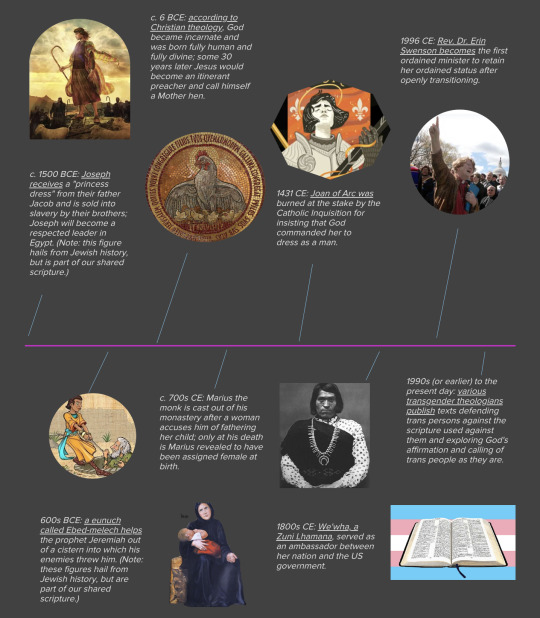
Glory on the Site: Binary Breakers (blessedarethebinarybreakers.com)
Avery Arden created this wonderful site that collates interpretation frameworks, timelines, and resources for queer and disabled christians. The site is brilliant in its density and a lovely beacon for everyone interested in queerness in history and theology.
The site began as a Tumblr blog in 2015, which I will tag below. They also share their work across Instagram, Twitter, Youtube, and almost every site that streams podcasts! Avery published their debut poetry collection The Kin-Dom in the Rubble in 2018.
Many thanks, Avery!
Tumblr: @blessedarethebinarybreakers
#avery arden#binary breakers#glory on the site#queer resource#queer poetry#contemporary poetry#theology resource#history resource#queer art#queer theory#queer history#queer theology#disability resource
1 note
·
View note
Text
a neurodivergent spoonie's guide to having teeth
LEGAL DISCLAIMER: This blog is for educational and informational purposes only. This does not constitute providing medical advice or professional services. Information on this blog should NOT be used for diagnostics or treating a health problem. Always seek the advice of your doctor or other qualified dental health provider regarding diagnosis and treatment of a dental condition. Never disregard professional medical advice or delay in seeking it because of something you have read on this blog.
this is as close to a comprehensive guide to dental care as i can make. i'm autistic/adhd/ocd/chronically ill and i've worked in dentistry for several years. i want to use my knowledge to help other spoonies struggling with dental care. i know it can be really hard, but dental health is so important and we deserve healthy mouths just as much as NT/abled folks!!
being neurodivergent and/or chronically ill can make personal care tasks incredibly difficult. so many of us struggle with washing our hair, getting dressed, and cleaning up. but remember: hair will grow back if it's damaged, clothes can be washed when they smell bad, and a dirty house can be made clean again, but we only have one set of teeth to last our whole lives. those pearly whites are worth taking care of!
these tips are based on feedback/questions i've gotten from ND folks on tumblr and facebook, patients at the practices i've worked in, and my own experience. standard disclaimer that this information will not be applicable to every single person, just take what works for you and pass the rest on to the next person. i am also a resource for further information. this is going to be pretty rapidfire, so if you want me to elaborate on anything or have a question about something i didn't address in this post, my askbox is open and anon is enabled. i love talking about teeth and i would love to help my fellow spoonies take care of theirs!
without further ado:
on homecare:
any dental professional will tell you that having good oral health starts at home. taking care of our teeth can be incredibly difficult when our spoons are low, so i've made a list of strategies to make it easier.
best practice is to brush twice per day and floss once per day. this may not be realistic for those of us who struggle with habits and/or executive dysfunction. if you can only remember to brush once per day, brushing at night is the most important.
the ideal order of operations is floss, tongue scrape, mouthwash, then brush. but flossing and brushing are the most important steps in the routine.
brushing your teeth in the shower is perfectly acceptable! personally, i keep one toothbrush in the shower and one on the sink to maximize my opportunities to brush.
if you don't have the energy to floss, a toothbrush with fine bristles like this one is a good compromise.
you should replace your toothbrush or electric brush head every three months. the bristles get worn down and become less effective over time. set a recurring event on your phone calendar to keep track!
if you find it difficult to brush your teeth at all, use a washcloth to gently scrub your teeth until you feel that you've gotten the film off, then use a fluoride mouthwash. they also make single-use waterless toothbrushes like these. i like to keep them on my nightstand for really bad days when i can't even get myself to the bathroom to brush.
this is an excellent guide on proper brushing technique.
an electric toothbrush is an excellent investment. even a cheap one at the grocery store is a huge step above a manual toothbrush. personally, i love quip because they're more affordable than brands like sonicare, and they send you replacement brush heads on a regular basis.
be careful not to brush too aggressively; your brush should glide gently over the surface of your teeth. if you feel a lot of friction, lighten your pressure. brushing too hard can wear away your enamel and damage your gums.
if the mint flavor in toothpaste triggers sensory discomfort, try kids' toothpaste! it has less fluoride than adult toothpaste, but it's still miles better than not brushing at all.
mouthwash is used to neutralize bacteria on soft tissues. use an antibacterial or fluoride mouthwash for healthy gums and strong enamel. listerine original is the best, but they have lots of varieties including gum health, alcohol-free, and many more.
whenever possible, use a straw to drink soda or coffee so it doesn't touch your teeth, and rinse with water after you drink it. try to not sip sugary drinks throughout the day. switching to sugar-free beverages will make a huge difference in cavity prevention.
if you have any gaps between teeth, an interdental brush will help you keep the areas between those teeth clean and prevent decay.
i like to keep a package of floss picks in the living room so that i can floss while i watch tv. the best time to floss is right before you brush your teeth, but there is no bad time to floss.
this video shows proper flossing technique. this video shows proper technique when using floss picks.
dry mouth is a lesser-known cause of cavities. saliva protects your teeth from decay, so when you don't produce enough of it, you're at higher risk. dry mouth rinses like this one are a great defense against this!
remember, something is always better than nothing. brushing once a day is better than not brushing at all. flossing once a week is better than not flossing at all. be gentle with yourself.
on finding a dental provider:
finding a new provider and making an appointment can be confusing and overwhelming when we have low executive function. there are some ways to make it just a bit easier.
if you have insurance, they likely have a tool on their website to find providers in your network. you can usually find this information on your insurance card. this should narrow down your options considerably.
the absolute best thing you can do is find a supportive provider who you can open up to about your struggles with dental care. look up your options on google reviews and ctrl+f "anxiety". if these anxious patients have a good experience, it's more likely you will too.
you can ask for recommendations in your local community's facebook group or subreddit, both of which offer anonymity. specify your needs in your post. chances are, other people in your community have similar needs, and can help you find the right people to meet those needs.
a few people expressed that they avoid the dentist because of a family history of poor dental health, and the fear of having the same problems. i want to assure you that, while dental health does have a genetic component, it is far from the only factor. the most effective thing you can do to prevent dental issues is to go in for regular maintenance. prevention is the gold standard in dentistry.
a lot of us struggle with making phone calls. luckily, it's becoming increasingly common for practices to allow online booking and communication via email. look for these options on a practice's website!
if fear or executive dysfunction is getting in your way, phone a friend for help. sometimes things that are hard for us aren't as difficult for others. maybe your roommate can call the office for you. maybe your sister can drive you to your appointment. don't be afraid to lean on your village.
in the dental office:
a big issue with dental offices is that they are basically a sensory nightmare. while it's never going to be fully comfortable, there are some things you can do to make your experience more tolerable.
be open and honest with your dental providers. if you smoke, tell them (this includes cannabis; they cannot report you for cannabis use even if you're not in a legal state). if you've never flossed before, tell them. their job is to help you, not shame you. if a provider makes you feel ashamed, stop seeing them.
so many people have mentioned they're embarrassed about their anxiety and sensory struggles in the dental office. let me assure you that your providers see so many anxious patients every single day. they're used to it, and they're not going to be judging you. to help illustrate this, i'm going to cite some examples of patients from my practice and the ways we help them manage their anxiety and sensory struggles.
probably the most common concern among patients in our practice is a fear of the numbing injection. i have a pretty severe phobia of needles myself. our dental assistants are well-trained to manage this fear. they distract patients during the shot, and help them breathe through the anxiety before and after. this training is part of the dental assistant certification process, so it should be relatively universal.
you can bring a comfort item with you. be it a stuffed animal, a video game, a book, even a comforting person who can sit with you.
you know that lead vest that they lay on you when they take xrays? you can ask to wear that during your whole visit. it acts like a weighted blanket and it feels so nice and comforting. we have a few patients who do this at my practice.
headphones or earplugs are a lifesaver to drown out all the horrible sounds. i literally refuse to get a cleaning without them. there's even a hygienist at my practice that wears earplugs while she's working because the sound of the cavitron bothers her. there's no shame in it whatsoever.
if your practice offers it, nitrous oxide is a great option for anxiety. most people know it as laughing gas. it puts you in a dreamlike state so you're more or less unaware of what's going on. no joke, this stuff had me so relaxed i fully fell asleep while getting a root canal. you can even get it when you get your cleanings!
a lot of our patients request a specific doctor, dental assistant, and hygienist for their appointments. this is incredibly common. if you find someone that makes you feel safe, let the scheduling staff know that you'd like to see that person each time you come in.
dress comfy. there's no dress code for the dental office; show up in sweatpants if you want.
remember at the end of the day, your dental providers are not there to judge you if you don't have perfect homecare. their ultimate goal is to get your mouth healthy no matter your starting place. i can't speak for every dentist obviously, but the dentists at my practice are incredibly patient and sympathetic and have nothing but their patients' best interests in mind.
again: if you feel disrespected or shamed by your provider, find a new one who will be compassionate with you. you don't owe any provider loyalty, even if you've been going there since you were a toddler.
on recovery:
one of the hardest things to do is build healthy habits when you're starting from an unhealthy place. if you're dealing with poor dental health, getting your mouth healthy again can seem impossibly daunting. i'm here to tell you it is possible, but it takes work.
it starts in the dental chair. your provider should communicate what treatment is the highest priority, and they will start there. rather than overwhelming yourself with the big picture, focus your attention on the next step.
things like root canals, crowns, and periodontal treatment can be very expensive. unfortunately, in the united states at least, dental insurance is quite lacking across the board. if expenses are a concern, dental schools are a great option for having treatment done at a low cost. keep in mind that treatment will often take significantly longer due to the dentists being supervised students.
my job in the practice is treatment coordinator. this means that i work one-on-one with my patients to help them understand their treatment plans and make the process as easy and comfortable as possible for them. ask your practice if they have a treatment coordinator. if they don't, suggest that they create the role, and reach out to me here. my dream is to be able to help people manage their oral health. i will be a resource to anyone that doesn't have a treatment coordinator available to help you navigate your course of treatment.
any restorative work (fillings, crowns, etc.) that you have done has to be cared for, just like virgin teeth. cavities can still form underneath fillings and crowns. make sure you are keeping your regular hygiene appointments, and use the above strategies to effectively care for your restorations at home.
if you have a lot of treatment to work through, it may take a long time. we have patients that have spent 2-3 years working through their treatment plans with us. this can feel daunting and depressing. but remember, it's not forever. the majority of these patients who continue to see us for regular visits only have 1-2 new cavities at a time, if anything, once we finish their initial work.
there are very few dental problems that cannot be fixed. cavities can be filled, crowns placed, root canals done to save teeth that are severely decayed. gum disease cannot be cured, but it can be very effectively managed. i see patients all the time that come in expecting to lose all their teeth and need dentures, only to be relieved when we tell them only a few teeth are truly not restorable.
my job revolves around patient education, and it's always shocking to me how little we are taught about caring for our teeth. please be kind to yourselves; it is NOT your fault for not knowing or having the resources to take care of them yourself. once again, my askbox is open and anon is enabled if you have more questions after reading this guide.
#text#advice#long post#teeth#oral health#chronic illness#disability#mental health#autism#adhd#ocd#cripple punk#spoonie#chronic fatigue#resource#signal boost
1K notes
·
View notes
Text
Where to Start Your Research When Writing a Disabled Character
[large text: Where to Start Your Research When Writing a Disabled Character]
So you have decided that you want to make a disabled character! Awesome. But what's next? What information should you decide on at the early phrase of making the character?
This post will only talk about the disability part of the character creation process. Obviously, a disabled character needs a personality, interests, and backstory as every other one. But by including their disability early in the process, you can actually get it to have a deeper effect on the character - disability shouldn't be their whole life, but it should impact it. That's what disabilities do.
If you don't know what disability you would want to give them in the first place;
[large text: If you don't know what disability you would want to give them in the first place;]
Start broad. Is it sensory, mobility related, cognitive, developmental, autoimmune, neurodegenerative; maybe multiple of these, or maybe something else completely? Pick one and see what disabilities it encompasses; see if anything works for your character. Or...
If you have a specific symptom or aid in mind, see what could cause them. Don't assume or guess; not every wheelchair user is vaguely paralyzed below the waist with no other symptoms, not everyone with extensive scarring got it via physical trauma. Or...
Consider which disabilities are common in real life. Cerebral palsy, muscular dystrophy, stroke, cataracts, diabetes, intellectual disability, neuropathy, multiple sclerosis, epilepsy, thyroid disorders, autism, dwarfism, arthritis, cancers, brain damage, just to name a few.
Decide what specific type of condition they will have. If you're thinking about them having albinism, will it be ocular, oculocutaneous, or one of the rare syndrome-types? If you want to give them spinal muscular atrophy, which of the many possible onsets will they have? If they have Ehlers-Danlos Syndrome, which one out of the 13 different types do they have? Is their amputation below, or above the knee (it's a major difference)? Not all conditions will have subtypes, but it's worth looking into to not be surprised later. This will help you with further research.
If you're really struggling with figuring out what exact disability would make sense for your character, you can send an ask. Just make sure that you have tried the above and put actual specifics in your ask to give us something to work with. You can also check out our "disabled character ideas" tag.
Here are some ideas for a character using crutches.
Here are some ideas for a character with a facial difference (obligatory link: what is a facial difference?).
If you already know what disability your character is going to have;
[large text: If you already know what disability your character is going to have;]
Start by reading about the onset and cause of the condition. It could be acquired, congenital, progressive, potentially multiple of these. They could be caused by an illness, trauma, or something else entirely. Is your character a congenital amputee, or is it acquired? If acquired - how recently? Has it been a week, or 10 years? What caused them to become disabled - did they have meningitis, or was it an accident? Again, check what your options are - there are going to be more diverse than you expect.
Read about the symptoms. Do not assume or guess what they are. You will almost definitely discover something new. Example: a lot of people making a character with albinism don't realize that it has other symptoms than just lack of melanin, like nystagmus, visual impairment, and photophobia. Decide what your character experiences, to what degree, how frequently, and what do they do (or don't do) to deal with it.
Don't give your character only the most "acceptable" symptoms of their disability and ignore everything else. Example: many writers will omit the topic of incontinence in their para- and tetraplegic characters, even though it's extremely common. Don't shy away from aspects of disability that aren't romanticized.
Don't just... make them abled "because magic". If they're Deaf, don't give them some ability that will make them into an essentially hearing person. Don't give your blind character some "cheat" so that they can see, give them a cane. Don't give an amputee prosthetics that work better than meat limbs. To have a disabled character you need to have a character that's actually disabled. There's no way around it.
Think about complications your character could experience within the story. If your character wears their prosthetic a lot, they might start to experience skin breakdown or pain. Someone who uses a wheelchair a lot has a risk of pressure sores. Glowing and Flickering Fantasy Item might cause problems for someone photophobic or photosensitive. What do they do when that happens, or how do they prevent that from happening?
Look out for comorbidities. It's rare for disabled people to only have one medical condition and nothing else. Disabilities like to show up in pairs. Or dozens.
If relevant, consider mobility aids, assistive devices, and disability aids. Wheelchairs, canes, rollators, braces, AAC, walkers, nasal cannulas, crutches, white canes, feeding tubes, braillers, ostomy bags, insulin pumps, service dogs, trach tubes, hearing aids, orthoses, splints... the list is basically endless, and there's a lot of everyday things that might count as a disability aid as well - even just a hat could be one for someone whose disability requires them to stay out of the sun. Make sure that it's actually based on symptoms, not just your assumptions - most blind people don't wear sunglasses, not all people with SCI use a wheelchair, upper limb prosthetics aren't nearly as useful as you think. Decide which ones your character could have, how often they would use them, and if they switch between different aids.
Basically all of the above aids will have subtypes or variants. There is a lot of options. Does your character use an active manual wheelchair, a powerchair, or a generic hospital wheelchair? Are they using high-, or low-tech AAC? What would be available to them? Does it change over the course of their story, or their life in general?
If relevant, think about what treatment your character might receive. Do they need medication? Physical therapy? Occupational therapy? Orientation and mobility training? Speech therapy? Do they have access to it, and why or why not?
What is your character's support system? Do they have a carer; if yes, then what do they help your character with and what kind of relationship do they have? Is your character happy about it or not at all?
How did their life change after becoming disabled? If your character goes from being an extreme athlete to suddenly being a full-time wheelchair user, it will have an effect - are they going to stop doing sports at all, are they going to just do extreme wheelchair sports now, or are they going to try out wheelchair table tennis instead? Do they know and respect their new limitations? Did they have to get a different job or had to make their house accessible? Do they have support in this transition, or are they on their own - do they wish they had that support?
What about *other* characters? Your character isn't going to be the only disabled person in existence. Do they know other disabled people? Do they have a community? If your character manages their disability with something that's only available to them, what about all the other people with the same disability?
What is the society that your character lives in like? Is the architecture accessible? How do they treat disabled people? Are abled characters knowledgeable about disabilities? How many people speak the local sign language(s)? Are accessible bathrooms common, or does your character have to go home every few hours? Is there access to prosthetists and ocularists, or what do they do when their prosthetic leg or eye requires the routine check-up?
Know the tropes. If a burn survivor character is an evil mask-wearer, if a powerchair user is a constantly rude and ungrateful to everyone villain, if an amputee is a genius mechanic who fixes their own prosthetics, you have A Trope. Not all tropes are made equal; some are actively harmful to real people, while others are just annoying or boring by the nature of having been done to death. During the character creation process, research what tropes might apply and just try to trace your logic. Does your blind character see the future because it's a common superpower in their world, or are you doing the ancient "Blind Seer" trope?
Remember, that not all of the above questions will come up in your writing, but to know which ones won't you need to know the answers to them first. Even if you don't decide to explicitly name your character's condition, you will be aware of what they might function like. You will be able to add more depth to your character if you decide that they have T6 spina bifida, rather than if you made them into an ambiguous wheelchair user with ambiguous symptoms and ambiguous needs. Embrace research as part of your process and your characters will be better representation, sure, but they will also make more sense and seem more like actual people; same with the world that they are a part of.
This post exists to help you establish the basics of your character's disability so that you can do research on your own and answer some of the most common ("what are symptoms of x?") questions by yourself. If you have these things already established, it will also be easier for us to answer any possible questions you might have - e.g. "what would a character with complete high-level paraplegia do in a world where the modern kind of wheelchair has not been invented yet?" is more concise than just "how do I write a character with paralysis?" - I think it's more helpful for askers as well; a vague answer won't be of much help.
I hope that this post is helpful,
mod Sasza
#mod sasza#writing reference#writing advice#writing resources#writeblr#writing disabled characters#writing resource#long post#writing tips#writing guide
4K notes
·
View notes
Text
CRITICAL EMERGENCY!!! 15 y/o girl needs heart surgery!!!!
Earlier this month, we made a post asking for your support in attaining 15 year-old Nour’s monthly treatment for her congenital heart condition. Unfortunately, the funds raised came too late. Nour’s health took a dramatic downturn yesterday, and the doctor said that because she had gone so long between monthly treatments, several of Nour’s heart valves have closed up. She now requires an urgent operation to save her heart.
NOUR WILL DIE WITHOUT THIS SURGERY!! She is dying right now because her heart is struggling to function! She needs this surgery IMMEDIATELY to save her young life!!

The doctor said the surgery will cost $8000 USD. Nour’s family’s GFM is in Canadian dollars, or CAD, of which the conversion rate to USD is $1 USD=$1.41 CAD. This means we need $11,300 CAD in donations in order to pay the equivalent of $8000 USD for her surgery.
We NEED to raise the funds ASAP so Nour has a chance at survival!! We are breaking this sum up into 2 smaller goals to be more attainable. Our first goal to save Nour’s life is to raise $4000 USD/$5656 CAD.
**Progress: $43,187 CAD out of $49,000 CAD**
(or $30,554 USD out of $34,670 USD)
PLEASE HELP SAVE NOUR’S LIFE!!!
@90-ghost @nabulsi @ibtisams @socalgal @vague-humanoid @neptunerings @chilewithcarnage @frigidwife @diasdelasombra @annevbonny @tamarrud @stuckinapril @king-b0mbastic @dykesbat @lesbianmaxevans @qattdraws @irhabiya @sar-soor @sayruq @gazagfmboost @dlxxv-vetted-donations @vetted-gaza-funds @butchniqabi @butchfeygele @butchfeygela @self-hating-zionist @antizionisttranslations @antifainternational @antizionistprincess @gothhabiba @khanger @userpeggycarter @zamanassad @palhelp @resourcesforradicals @watermotif @rhubarbspring @anneemay @pcketknife @appsa @malcriada @wellwaterhysteria @queernigga @lesbiancalliope @lesbianholster @lesbiannova @queerstudiesnatural @feluka @kordeliiius
#gaza#gaza genocide#gaza strip#gaza under attack#free gaza#from the river to the sea palestine will be free#palestinian genocide#north gaza#stop genocide#stop the genocide#stop gazan genocide#stop gaza genocide#aid for gaza#gaza aid#north gaza aid#gaza action#eyes on north gaza#aid for north gaza#save north gaza#gaza relief#gaza resources#gaza refugees#displaced palestinians#ibtisam al habil#ngu*#gazan families#gaza fundraiser#gaza gfm#gaza gofundme#disability rights
12K notes
·
View notes
Text
“alt text for more info” “turn on cations for more info” no actually this is not where more info goes. These have a very distinct purpose. There are plenty of other places for more info. If you’re going to make your post inaccessible, the least you could do is not use accessibility tools at your own leisure for whatever purpose you see fit.
#disability accessibility#accessibility#vision impaired#hearing impaired#hard of hearing#physical disability#sensory disability#disability accommodations#disability representation#disability advocacy#equitability#neurodiversity#adhd autistic#disabled things#alt text#captioning#subtitles#disability resources#accessibility tools
5K notes
·
View notes
Text
this disability pride month you can help disabled people by continuing to mask up, using appropriate masks (KN95 or N95) and appropriate masking technique (wash your hands before and after putting it on, don't touch the front, make sure there's no gaping) 🫧
#rambles#this is aimed at those who can both afford to mask / have resources available#& are physically able to#I personally am at risk while masking but still aim to as much as possible#because i am. equally at risk to another group of things when not masking !#yay me#anyway#disability posting#disabled#disability#chronically ill#chronic illness#invisible disability#invisible illness#dynamic disability#neurodivergent#masking#mask up#covid#long covid
1K notes
·
View notes